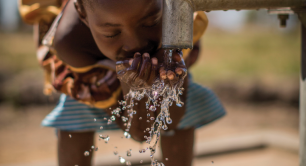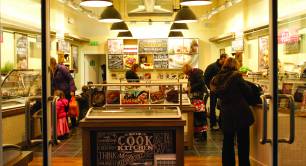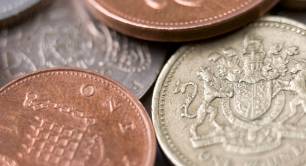Change is coming and we mean business
With the launch of the B Corps certification in the UK, there's now greater transparency around which companies are trying to act responsibly for people and planet, as well as profit.
This is a week of change. It’s possibly the biggest week of change to hit businesses for some years. In fact, if all goes according to plan, and we all follow the script, this week could change everything.
Last night (Thursday 24th September) saw the official launch of the B Corps (Benefit Corporation) movement in the UK. Originating in the US and now coming to these shores, it’s a new way to define what business can do and what success looks like. The status is only awarded to "socially conscious businesses that meet externally audited rigorous standards of social and environmental performance, accountability and transparency". It means that these businesses will not only be judged on their financial strength but their ability to meet certain social and environmental contributions.
Global B Corps include Patagonia, Hootsuite, Ben & Jerry’s, Change.org and Kickstarter. And I’m very proud to say that Forster is one of the first in the UK to qualify (as is Matter & Co, the business behind this very fine periodical). The movement is gathering phenomenal momentum here as investors, commissioners, employers and consumers recognise that companies which create positive social and environmental impact, those which treat their workers with respect and operate with good governance, are the best of business. Indeed, they are the future of business.
We recently launched our inaugural ‘Business to Society’ study, which revealed that 57% of business leaders believe they should be doing more to tackle social issues, while 63% of consumers believe the same. Younger business leaders are particularly engaged, with 82% of those under 35 saying business should do more. The survey also showed that consumer demand is playing a role in creating incentives for businesses to get more involved – 64% of consumers think businesses should work more with charities and 53% are more likely to give their custom to a business with a strong stance on social and environmental issues. Social good is not a bolt-on but an essential, profitable ingredient in new business models.
This all comes at a time in which a new global framework is being constructed for the future. Today, world leaders (and Beyoncé) will gather at the UN to ratify the 17 Global Goals for Sustainable Development, and set a path for 2030 to eradicate poverty, tackle inequality and fix climate change. They build on the Millennium Development Goals (MDGs), set in 2000 and expiring this year. Whilst those have led to some significant changes and proven global goals can make an impact, they have also fallen short in a number of ways – nearly a quarter of humanity continues to live on less than $2 per day, and inequality, environmental degradation and climate change have worsened.
The new Sustainable Development Goals (SDGs) are wider reaching, with 17 goals and 169 associated targets. They have been built over the past two years by the 193 member states – the complete list is here. And whilst the MDGs focused primarily on the social agenda and targeted developing countries, the SDGs will apply to the entire world and reflect the fact that economic growth, social inclusion and environmental protection are all interconnected elements of sustainable development.
This connectedness is further evidence of the role socially-orientated businesses, such as the B Corp movement, have in helping meet some of the world’s most pressing challenges. Put simply, the goals will not be achieved without the might and muscle of business – the right kind of business. There are 62 founding UK B Corps spanning ten industries which have already certified, joining 1,400 certified B Corps in 42 countries. This movement is seeking to change the role of business in society, and that is something we can all benefit from.



